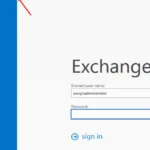Sick leaves are a crucial aspect of any workplace, allowing employees to take time off when they are unwell or need to attend to personal matters. However, sick leave abuse is also a persistent problem, with some employees taking advantage of the system by faking illnesses or prolonging their absence without valid reasons.
To address this issue, some employers in India are turning to AI technology to detect fraudulent sick leaves and ensure that their workforce is honest and accountable.
In this article, we will explore the promise and potential of AI-powered sick leave detection, as well as its benefits and drawbacks, ethical and legal implications, and the need for a holistic approach to sick leave management.
Whether you are an employer, employee, or concerned citizen, this article will provide you with valuable insights and perspectives on a timely and pressing topic.

Table of Contents
AI technology to detect fraudulent sick leaves in the workplace
At a time when many employees are struggling with the consequences of the pandemic, including health issues, burnout, and mental stress, the issue of sick leave abuse has become more pressing than ever.
According to a recent viral report, some employers in India are planning to use AI technology to detect fake sick leaves and ensure that their workforce is honest and accountable.
The promise and potential of AI for sick leave detection
The report claims that AI algorithms can analyze patterns of employee behavior, such as keystrokes, mouse movements, and browsing history, to identify signs of absenteeism, deception, or inconsistency.
By using machine learning techniques to learn from past cases and detect anomalies, the system can flag potential fraudsters and alert HR managers to investigate further.
The benefits and drawbacks of using AI for sick leave detection
Proponents of AI-powered sick leave detection argue that it can help reduce costs, increase productivity, and foster a culture of trust and transparency in the workplace.
They claim that by eliminating the possibility of fake sick leaves, employers can ensure that their employees are not taking undue advantage of the system, and that those who genuinely need time off are given the support and resources they need.
However, critics of this approach warn that AI can be biased, inaccurate, and intrusive. They point out that relying solely on algorithmic analysis to determine the validity of sick leaves can overlook important contextual factors, such as the employee’s health condition, family situation, or workload.
Moreover, they argue that such a system can erode trust between employees and managers, as well as violate privacy and autonomy.
The ethical and legal implications of AI for sick leave detection
The use of AI for sick leave detection raises a number of ethical and legal concerns, which need to be addressed proactively and transparently.
For example, who has access to the data generated by the system, how is it stored and secured, and what are the safeguards against misuse or abuse? How can employees appeal against a false or unfair accusation of fraud, and what remedies are available to them?
Furthermore, what are the long-term effects of such a system on employee morale, motivation, and loyalty? Will it create a culture of suspicion and surveillance, or will it foster a sense of responsibility and accountability?
What are the implications for labor laws, human rights, and social justice, and how can they be balanced against the interests of employers and the economy?
Conclusion: the need for a holistic approach to sick leave management
While AI technology may offer some benefits for detecting fraudulent sick leaves, it is not a panacea for the complex and multifaceted issue of sick leave management.
Employers need to adopt a holistic and human-centered approach that takes into account the needs and rights of their employees, as well as the business objectives and legal requirements of their organization.
This approach should involve clear and fair policies, effective communication and feedback mechanisms, and proactive measures to promote health and well-being in the workplace.
In conclusion, the use of AI for sick leave detection should be seen as a means, not an end, and should be evaluated carefully and critically in the light of its potential benefits and drawbacks.
Only by working together and learning from each other can we create a workplace that is both productive and humane, where employees feel valued, supported, and empowered to perform at their best.
Don’t forget to support us by following us on Google News or Returning to the home page TopicsTalk
Join Telegram and WhatsApp for More updates
Follow us on social media




